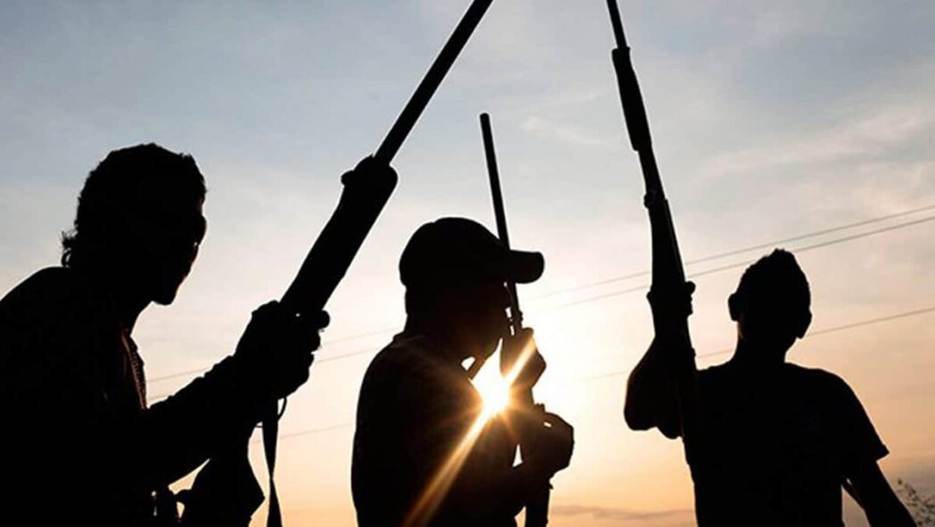Several Civil Society Organisations, CSOs, have expressed worry over worsening insecurity in Nigeria which they noted had claimed about183 lives in the third week of April 2025 alone in Benue and Plateau States.
The 21 CSOs, which expressed their concern in a statement, are: Advocacy Centre for Development, AC4D; Alliances for Africa; Almajiri Child Rights Initiative, ACRI; All-4-One Humanity Development Foundation; African Initiative for Peace Building, Advocacy and Advancement (AfriPeace); Bauchi Human Rights Network; The Benue We Deserve Foundation (BenDeF); Capacity Catalyst Consult (Triple C); Centre for the Advocacy of Justice and Rights; Center for Community Excellence; Centre for Democracy and Development;
Others are: Civil Society Legislative Advocacy Centre, CISLAC; Global Rights; Grassroots Development Monitoring and Advocacy Centre GDMAC; Human Rights Network; Initiative for Social Development in Africa, iSODAF; Mowalek Centre for Sustainable Community Development; Neighbourhood Environment Watch Foundation; Sesor Empowerment Foundation; Srarina Initiative for Peace, Justice and Development; and We the People.
The statement read in part: “The Community of Practice Against Mass Atrocities, under the auspices of Nigeria Mourns, strongly condemn the recent brutal and coordinated attacks on agrarian communities in Benue and Plateau States, which have led to the loss of at least 183 lives in the third week of April 2025 alone.
“These attacks, perpetrated by criminal groups often mischaracterised as herders in conflict with farmers over land and water, are nothing short of acts of terror against vulnerable communities. In Benue State, at least 11 people were killed in Akpa, Otukpo Local Government Area (LGA); 56 others were killed in Logo and Ukum LGAs, with similar atrocities reported in Agatu, Kwande, and Katsina-Ala. At least 54 people were killed in Zikke village, Bassa LGA of Plateau State, in addition to 52 others killed in six other villages within Bokkos LGA, Plateau State, in yet another targeted onslaught. Eyewitnesses have confirmed the presence of armed assailants in Tyolough, Ukum LGA, further aggravating fears of continued violence.”
The CSOs agonised that “The way and manner these attacks are undertaken leaves no doubt that they are not isolated incidents. It reflects a long-standing, systemic failure to address a crisis that has devastated agrarian communities for years. From 2019 to 2024, at least 2,105 Nigerians were killed in similar attacks across Nigeria.
“The frequency, coordination, lethality and impunity with which these attacks are carried out speak volumes about the Nigerian state’s inability or unwillingness to fulfill its constitutional duty as clearly provided in Section 14(2)(b) of the Constitution of the Federal Republic of Nigeria (as amended).
“These victims, men, women, children, and the elderly, were killed in their sleep, on their farms, and in their homes. Their only “crime” was residing in rural communities in a country increasingly defined by insecurity as a characteristic of the neglect of the rural areas by the Nigerian government.
“This brazen disregard for human life violates Section 33(1) of the Nigerian Constitution, which guarantees every citizen the right to life. The continued erosion of this right is a stain on our collective conscience as Nigerians.”
They insisted that, “It is the responsibility of the government to resolve the longstanding land use crises across the country. These crises are not merely about ownership or access, they are deeply tied to identity, survival, and economic control. In Plateau and Benue States, and indeed across other parts of the country, these land disputes are further complicated by mining-related land grabs, where lands historically used for agriculture or habitation are being appropriated for extractive activities without the free, prior, and informed consent of local communities. The ongoing violence cannot be divorced from these systemic issues. Ignoring these root causes will only perpetuate the cycle of bloodshed.
“We are deeply disturbed by the federal government’s inaction, especially when juxtaposed with the swiftness with which it addresses less consequential political matters elsewhere. This selective urgency further erodes public trust and confidence.”
They suggested that “The Government need to: Allow for an independent investigation into all reported attacks to ensure the prosecution of perpetrators without bias or delay, through the instrumentality of the National Human Rights Commission and the United Nations Human Rights Council.
“Strengthen security deployment in high-risk areas, with special attention to early warning and rapid response systems.
“Deploy the Nigerian Air Force for aerial surveillance and raids, with real-time feeds shared publicly to expose the true nature of the assailants or their conspirators.
“Initiate coordinated ground operations across affected states to reclaim and secure the lands taken over from the agrarian communities in the affected states.
“Introduce and fund drone surveillance systems in collaboration with state governments to monitor and pre-empt attacks.
“Put in the framework for compensation of victims’ families and build commemorative monuments to honor their memory.
“Support the formation of community-led safety watches (community security) to bolster local response capabilities.
Our thoughts and prayers remain with the bereaved families and displaced communities. We stand in solidarity with all victims of mass atrocities and reiterate that every Nigerian life matters.
“The government must act decisively now, not just to restore peace, but to preserve its own legitimacy, as enshrined in Section 14(2)(b) of the Constitution.
“As a coalition of committed civil society organizations, Nigeria Mourns will continue to amplify the voices of the vulnerable and demand justice on their behalf.”
